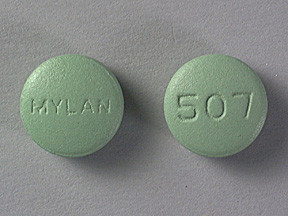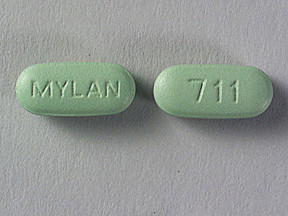METHYLDOPA/HYDROCHLOROTHIAZIDE - ORAL
PHONETIC PRONUNCIATION: (METH-il-DOE-pa/HYE-droe-KLOR-oh-THYE-a-zide)
COMMON BRAND NAME(S): Aldoril
GENERIC NAME(S): methyldopa/hydrochlorothiazide
Uses
USES: This medication is used to treat high blood pressure (hypertension). Lowering high blood pressure helps prevent strokes, heart attacks, and kidney problems. This product contains 2 medications: methyldopa and hydrochlorothiazide. Methyldopa works by relaxing blood vessels so blood can flow more easily. Hydrochlorothiazide is a "water pill" (diuretic). It increases the amount of urine you make, especially when you first start the medication. It also helps to relax the blood vessels so that blood can flow more easily. These medications are used together when 1 drug alone is not controlling your blood pressure. Your doctor may direct you to start taking the individual medications first, and then switch you over to this combination product if this is the best dose combination for you.
How to use METHYLDOPA/HYDROCHLOROTHIAZIDE - ORAL
HOW TO USE: Take this medication by mouth with or without food as directed by your doctor, usually 1 to 3 times daily. It is best to avoid taking this medication within 4 hours of your bedtime to avoid having to get up to urinate. Consult your doctor or pharmacist if you have questions about your dosing schedule. Your dosage is based on your medical condition and response to treatment. Use this medication regularly in order to get the most benefit from it. To help you remember, take it at the same time(s) each day. It is important to continue taking this medication even if you feel well. Most people with high blood pressure do not feel sick. If you also take certain drugs to lower your cholesterol (bile acid-binding resins such as cholestyramine or colestipol), take this product at least 4 hours before or at least 4 to 6 hours after these medications. When this medication is used for a long time, it may not work as well. Talk with your doctor if this medication stops working well (such as your blood pressure readings remain high or increase).
Side Effects
Precautions
Interactions
Overdose
Images

- color
- green
- shape
- round
- imprint
- MYLAN, 507

- color
- green
- shape
- oblong
- imprint
- MYLAN, 711
Reviews
Faq for METHYLDOPA/HYDROCHLOROTHIAZIDE - ORAL
Methyldopa/hydrochlorothiazide is a combination medication used to treat high blood pressure. It contains two active ingredients: methyldopa, which is an alpha-2 adrenergic agonist, and hydrochlorothiazide, which is a diuretic.
Methyldopa works by stimulating certain receptors in the brain that help to relax and widen the blood vessels, thereby reducing blood pressure. Hydrochlorothiazide works by increasing the amount of water and salt expelled from the body, which also helps to lower blood pressure.
The most common side effects of this medication include dizziness, lightheadedness, drowsiness, headache, upset stomach, constipation, and dry mouth. It may also cause a decrease in sexual ability or drive.
Follow the directions provided by your doctor. Usually, this medication is taken by mouth with or without food, once or twice daily. It is important to take it regularly to get the best results. Do not stop taking this medication abruptly without consulting your doctor.
Yes, there are several precautions and warnings. This medication may cause dizziness or drowsiness, so avoid activities that require alertness until you know how it affects you. It may also cause a decrease in blood sodium levels and electrolyte imbalance, so regular monitoring of blood tests is important. It should be used with caution in people with certain medical conditions, such as liver or kidney problems, gout, or diabetes.
It is important to inform your doctor about all other medications, supplements, and herbal products you are taking, as certain medications may interact with methyldopa/hydrochlorothiazide. This includes other blood pressure medications, nonsteroidal anti-inflammatory drugs (NSAIDs), lithium, and certain antidepressants.
The time it takes for this medication to start working varies from person to person. It may take a few weeks of regular use before you notice a significant decrease in your blood pressure. It is important to continue taking the medication as directed by your doctor, even if you feel well.
It is generally recommended to avoid alcohol while taking this medication. Alcohol can increase the side effects of dizziness and lightheadedness. Additionally, excessive alcohol consumption can raise blood pressure and reduce the effectiveness of the medication.
If you miss a dose, take it as soon as you remember. However, if it is close to the time for your next dose, skip the missed dose and resume your regular dosing schedule. Do not take double doses to make up for a missed dose.
Disclaimer
IMPORTANT: HOW TO USE THIS INFORMATION: This is a summary and does NOT have all possible information about this product. This information does not assure that this product is safe, effective, or appropriate for you. This information is not individual medical advice and does not substitute for the advice of your health care professional. Always ask your health care professional for complete information about this product and your specific health needs.
No Reviews Yet